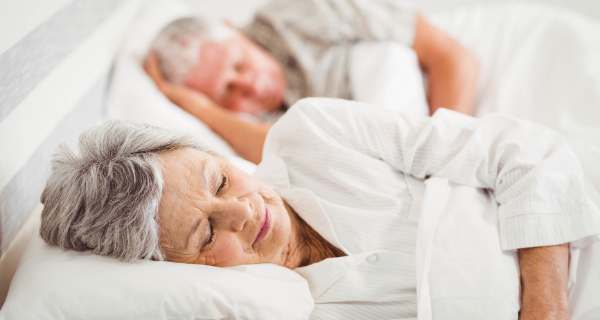Poor sleep is a common complaint for many. According to a survey conducted by the National Sleep Foundation, more than half of Americans say they aren’t sleeping well, and wish they could sleep better. Lack of restorative sleep can cause a variety of symptoms ranging from irritability and forgetfulness to a weakened immune system and high blood pressure. Doctors recommend between 7 to 8 hours of sleep per night; however, most Americans fall far short of that goal. Thankfully, there is a lot you can do to improve your sleep quality. Discover how to sleep better and more soundly with these simple tips. Sweet dreams!
Get Enough Sunshine
Your circadian rhythm functions as your body’s internal clock, and is responsible for governing your sleep schedule. In addition to leaving you feeling energized, regular exposure to daylight keeps your circadian rhythm running smoothly. If spending time in the sun isn’t possible, or practical, a bright light will work too. If you are struggling with how to sleep better, experts recommend increasing your exposure to natural or bright light during the day. Studies suggest doing so may improve both the quality and duration of your sleep.
Limit Screen Time
Not all light is created equal. The Cleveland Clinic warns against using laptops and smart devices too closely to bedtime, as the blue light can interfere with your internal clock. To increase your chances of a better night’s sleep, they recommend powering down your electronic devices at least 30 minutes before bed. If you think blue light is impacting your sleep quality, special glasses and apps are available to reduce your exposure.
Reduce Caffeine and Alcohol
When the mid-afternoon slump arrives, it is natural to reach for a cup of coffee, or a can of soda for a quick energy boost. Similarly, many individuals choose to relax with a glass of wine after dinner. Sleep experts recommend against both habits as they can lead to sleep disturbances. Reserving your coffee for the morning, and limiting your alcohol intake are two simple steps you can take to sleep better.
Keep a Regular Sleep Schedule
If you didn’t sleep well the night before it can be tempting to sleep in. Doing so can confuse your internal clock – setting the stage for further sleep disruptions. Studies suggest that an irregular sleep schedule can alter both your circadian rhythm and melatonin levels. If you are serious about learning how to sleep better, maintaining a set sleep schedule is a great way to get started.
Keep it Quiet
From a partner who snores to a dripping faucet in the bathroom, background noise can impact your ability to get a good night’s sleep. Many individuals rely on white noise to fall and stay asleep. You can use a fan, or an app on your phone to create ambient noise. Noise canceling headphones are also an option if you are particularly sensitive to sounds.
Create a Relaxing Bedtime Routine
A consistent routine will let your body and mind know that it is time for bed – helping you to fall asleep quickly. Aim to wind down at least 30 minutes before your actual bedtime. Reading (from an actual book), gentle yoga, coloring, and meditation are all good activities to include.
Exercise
Daily exercise provides numerous health benefits, which include sleeping better. Individuals who regularly exercise typically fall asleep faster and stay asleep longer. If you struggle with insomnia, a daily exercise regime may help to reduce the severity of your symptoms. Experts caution against exercising too late into the evening as it can cause problems falling asleep.
Keep it Cool
Everyone wants to be warm and toasty when they slumber; however, keeping your bedroom too warm can interfere with your sleep. While everyone’s preferences are unique, sleep experts recommend setting your thermostat between 65 and 72 degrees. If you are a warm sleeper, trying using a fan to help keep you cool and comfortable.
Nap Carefully
A nap might seem like a great idea – especially when you didn’t sleep well the night before. The Mayo Clinic cautions that longer naps, or naps later in the day can interfere will your ability to fall asleep. If you must nap, they suggest limiting your nap to under 30 minutes. Avoid waiting until later in the day, if possible.
Next Read: Simple Self-Care Ideas
Taking time for yourself is key to your mental and physical health. And it doesn’t need to be complicated, expensive, or time-consuming. Read our next story to get easy self-care ideas you can do right at home.






